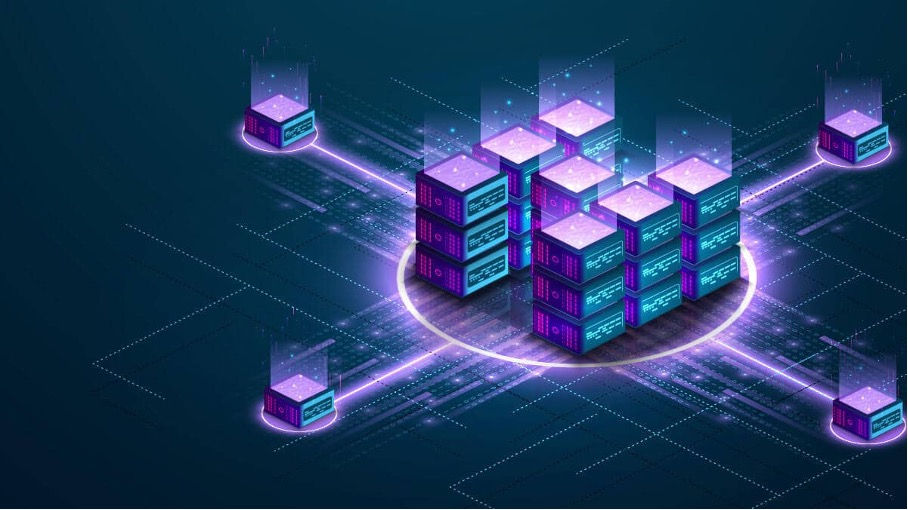A revolution in virtual data rooms thanks to Blockchain technology
- Joanna Dmitruk
- 12 cze 2024
- 3 minut(y) czytania
In today's digital age, data security and integrity are paramount issues for companies across industries. The emergence of blockchain technology has revolutionized the way we view and manage data, offering a decentralized and transparent structure that provides trust and immutability. When integrated with virtual data rooms (VDRs), blockchain is ushering in a new era of secure, efficient, and reliable data management. Let's look at how blockchain technology is transforming virtual data rooms and enhancing their capabilities.

Ensuring data integrity
One of the key features of blockchain technology is its ability to ensure data integrity. In a blockchain network, data is stored in multiple nodes in a decentralized manner. Each transaction or change made to the data is recorded in a block and linked to the previous one, forming a chain of blocks - hence the name 'blockchain'. This structure makes it virtually impossible for any single entity to change the data without consensus with the network.
When used in virtual data rooms, blockchain technology provides an immutable record of all actions and changes made to documents stored on the platform. This means that users can trust the integrity of the data, knowing that it has not been tampered with or altered in any unauthorized way. Whether it is financial records, legal documents, or confidential corporate information, blockchain ensures that data remains secure and trustworthy.
Increasing security
Security is a top priority for organizations when it comes to managing sensitive data. Traditional virtual data rooms rely on centralized servers that are vulnerable to cyber-attacks and data breaches. Blockchain technology offers a more robust security solution by decentralizing data storage and implementing cryptographic techniques to protect information. With blockchain-integrated VDRs, data is encrypted and distributed across a network of nodes, making it extremely difficult for hackers to break into the system. Additionally, access control and smart contracts can be implemented using blockchain technology, allowing organizations to define and enforce detailed permissions for users based on their roles and responsibilities. This ensures that only authorized individuals can view, edit, or share specific documents in the virtual data room.
Transaction streamlining
Another key advantage of blockchain technology in virtual data rooms is its ability to streamline transactions and document management processes. Traditionally, transferring asset ownership or executing contracts involves multiple intermediaries, paperwork, and manual verification processes, leading to delays and inefficiencies. Using blockchain technology, VDR transactions can be automated using smart contracts - self-executing contracts with predefined rules written in code. Smart contracts allow parties to transact directly with each other, eliminating the need for intermediaries and reducing the time and costs associated with document processing. Whether for M&A transactions, real estate transactions or fundraising activities, blockchain-integrated VDR systems can accelerate the pace of business and increase efficiency.
Facilitate audits and compliance
Compliance with regulatory requirements and industry standards is a key aspect of data management, particularly in highly regulated sectors such as finance, healthcare, and legal services. Blockchain technology can facilitate audits and compliance activities by providing a transparent and immutable record of all transactions and changes made to data.
Auditors can easily verify the integrity of data stored in a blockchain-integrated VDR by examining the transaction history stored in the blockchain. This increases transparency and accountability, enabling organizations to demonstrate compliance with regulatory frameworks such as GDPR, HIPAA or SOX. Furthermore, blockchain technology enables organizations to automate compliance processes through smart contracts, ensuring contractual obligations are met and regulatory requirements are complied with.
Summary
Blockchain technology has enormous potential to transform virtual data rooms into highly secure, efficient, and transparent platforms for managing sensitive data and conducting business transactions. By leveraging blockchain's inherent features of data integrity, security, automation and transparency, organizations can mitigate risk, streamline operations, and unlock new opportunities for collaboration and innovation in the digital age. As blockchain grows in popularity, we can expect its integration into virtual data rooms to become increasingly common, revolutionizing the way we securely store, manage, and share information.
About us
DealDone is a specialised company offering high quality information and data security products. We offer digitisation services and software in the field of modern technologies for the circulation of confidential information, classified information, sensitive data and the digitisation, security, encryption and sharing of data and documents inside and outside the organisation.
For more than 10 years, DealDone has specialised in providing solutions related to the digitisation, archiving and sharing of documents in the form of Document Management System (DMS) or Virtual Data Room (VDR). The company has independently developed and marketed the SECUDO VDR system. VDR SECUDO is a platform for secure digitisation, archiving, sharing and processing of corporate documents and data offered in the cloud, in a Software-as-a-service model, for business customers.
DealDone also owns the portals www.platformainwestora.pl and www.sprzedamfirme.com, through which it supports transaction processes related to selling a company, raising capital and finding investors for a project.

